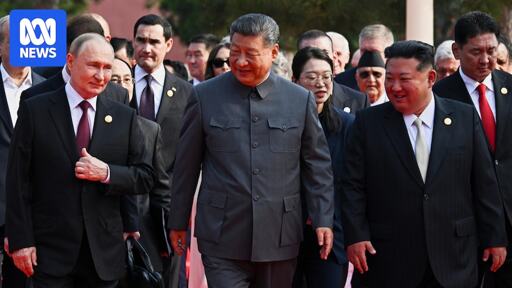In short:
A live-stream broadcast of China’s military parade has captured Xi Jinping and Vladimir Putin discussing biotechnology’s potential to extend life.
An interpreter translating Mr Putin can be heard saying in Mandarin that human organ transplants could let “us live younger and younger, and perhaps even achieve immortality”.
Mr Xi responded that it may be possible for people to live to 150 years this century.



Life expectancy at 25 hasn’t changed dramatically in the last 2000 years, less than 10 years in most parts of the world. Life expectancy at birth has improved dramatically, and that isn’t doing much for me, Putin, or Xi at this point. Certainly, the improved healthcare afforded to Putin and Xi is going to help their life expectancy more than the average. All that said, a lot of improvements have happened in the last couple centuries, mostly based on our knowledge. Sure, exponential growth isn’t going to happen forever, not even in gaining knowledge, but I wouldn’t be surprised to see it happen in biology for the next century. If it does, extending life expectancy at birth to 150 could be quite conservative.
Heavily dependent on where and when you lived. In Tibet, for instance, life expectancy topped out at around 35 years in 1950 and is now cresting 75 in 2025. In the Palestinian Territories, the last ten years have seen life expectancy actually grew from 67 years to 76 years between 1992 and 2022. Then, in 2023, it fell off a cliff for some reason.
A nasty famine, a brutal war, or a global pandemic can clip the lives of senior citizens short very quickly.
But otherwise, sure. Solving the problems of agriculture and sanitation modernization have been comparatively easy relative to addressing telomere erosion or alzhemier’s treatments. Simply not killing people is a lot easier than keeping them alive indefinitely.
Although, one might also argue that the problems of aging haven’t been felt so acutely prior to the 1950s, because comparatively fewer people were living into their senior years. Now that we have a bumper crop of senior citizens, we’ve been given a strong economic incentive to pursue technologies at an industrial scale. It’s not just The Qin Emperor downing cups of mercury, thinking his exceptional wealth and privilege will grant him an extract century of youthfulness.
There is a difference between maximum age and life expectancy, just as there is a difference between life expectancy at different ages. The life expectancy at 25 in Roman times was about 70 years old. All of our advances have added about 10% to a person’s life span after they got past childhood diseases, the recklessness of youth, and serving in the military in the case of Romans. And I’m not entirely sure of the relevance of a genocide in Israel to Xi’s prospects.
Maybe for a Senator or other member of the patrician class.
But even in the last century, we’ve seen more movement than what you’re describing.
So, closer to 20%
The vast majority of these advanced have occurred in the last 70 years. The intervening 2500 has been relatively flat.
Mostly just a comparison of wealth and technology.